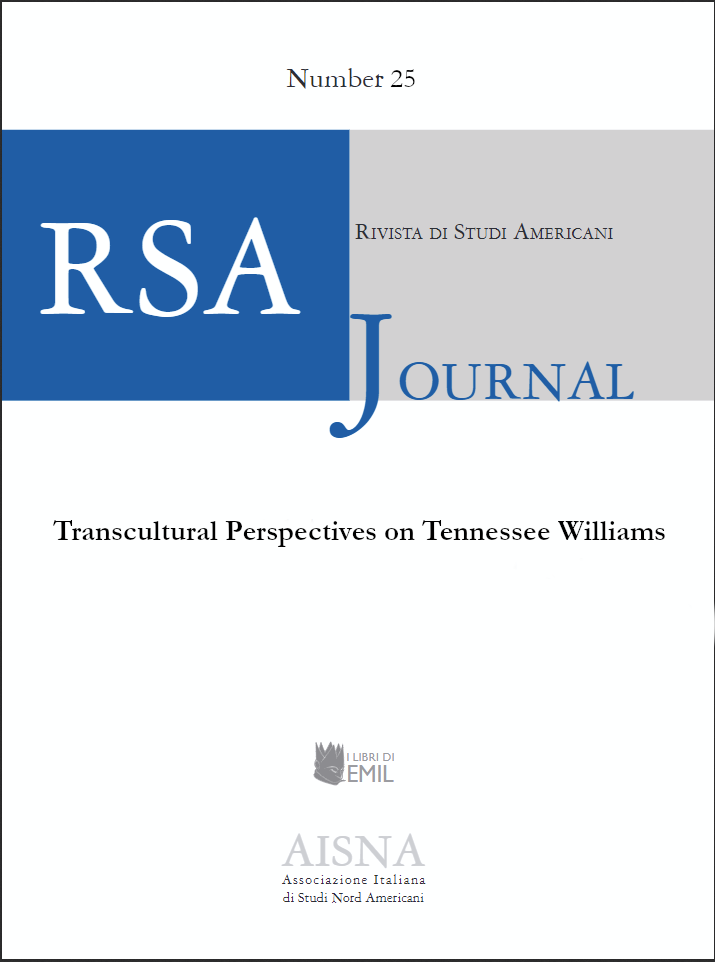A Transcultural Perspective on the Casting of “The Rose Tattoo”
DOI:
https://doi.org/10.13135/1592-4467/8604Parole chiave:
Italian immigrant, neorealist approach, transculturalismAbstract
The film The Rose Tattoo (Daniel Mann, 1955), based on a play written by Tennessee Williams specifically for Anna Magnani, constitutes a transcultural experience both in the narrative, since it is set within an Italian-American community, and in the performance style, because of the import of neorealist actress Anna Magnani, and of an emerging personality of Italian cinema such as Marisa Pavan. They were surrounded by actors and actresses coming from the Italian immigrant stage like Sandro Giglio (Father De Leo), Mimì Aguglia (Assunta), Rossana San Marco and Augusta Merighi (two actresses from the Broadway cast, who play the old women “chorus”). The presence of these performers, in addition to recovering the history of the Italian immigrant stage on American media, allows us to reconsider the impact of the Italian performance style in Hollywood cinema, and compare two “realist” approaches: the American one, at that time strongly affected by Lee Strasberg’s Method Acting (Actor’s Studio) and the neorealist approach.
##submission.downloads##
Pubblicato
Fascicolo
Sezione
Licenza
Avviso sul Copyright
RSAJournal applica una licenza CC BY-NC-ND a tutti i suoi contributi. Questa licenza consente agli utenti di copiare e distribuire il materiale in qualsiasi supporto o formato solo in forma non adattata, per scopi non commerciali e a condizione che venga esplicitato/a l'autore/autrice dell'opera. CC BY-NC-ND include i seguenti elementi:
- BY: L'autore deve essere riconosciuto come tale.
- NC: Sono consentiti solo utilizzi non commerciali dell'opera.
- ND: Non sono consentite opere derivate o adattamenti dell'opera.
Gli autori che pubblicano con questa rivista accettano i seguenti termini:
- Gli autori conservano il copyright e tutti i diritti di pubblicazione per i loro contributi alla rivista.
- Gli autori concedono alla rivista il diritto di prima pubblicazione in base alla licenza internazionale Creative Commons Attribution-NonCommercial-NoDerivatives 4.0, che consente ad altri di condividere l'opera non modificata per scopi non commerciali a condizione che venga esplicitato/a l'autore/autrice dell'opera e la sede di pubblicazione iniziale (questa rivista).
- Gli autori sono in grado di stipulare accordi contrattuali separati e aggiuntivi per la distribuzione non esclusiva della versione pubblicata dalla rivista (ad esempio, per inserirla in una repository istituzionale o pubblicarla in un libro), con l'indicazione che il contributo è stato precedentemente pubblicato in RSAJournal.




